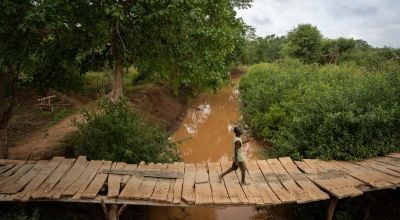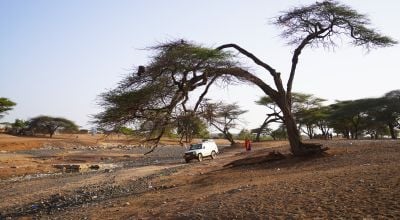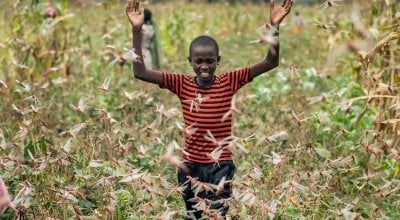
Read our 2023 annual report

Knowledge Hub
Drought brings food crisis to Ethiopia
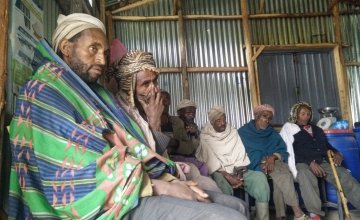
A huge drought in Ethiopia means millions of people are malnourished, at risk of disease or unable to earn a living. Ethiopia country director Kate Corcoran tells us how things are on the ground and what Concern is doing to help.
Failed rains
Low rainfall is the reason for this crisis. Ethiopia usually has two rainy seasons – spring and summer. However in 2015, the pattern went askew: the spring rain failed in most areas while the summer rain was disrupted by the El Niño weather system.
Many observers – from scientists to farmers – are attributing this to climate change. And Concern’s Ethiopia country director Kate Corcoran agrees:
I put a lot of what’s happened down to climate change. Farmers have told us they can’t depend on the seasons any more – they don’t know when to plant and when to harvest.
Families struggle
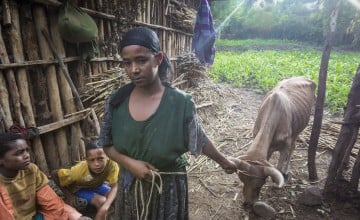
The low rainfall has led to water shortages which are having a severe impact. People have little or nothing to drink. Crops have failed and cattle have died. This means that families are struggling to get enough to eat, and can’t sell their produce to buy everyday essentials.
About eight in ten people in Ethiopia rely on farming to get by. But for some farmers, the next harvest won’t be until November or December – if it arrives at all.
Disease is also a growing threat. Without water for washing, scabies has quickly become a huge problem.
The crisis is being felt acutely, even in areas that are usually more immune to shocks. East Gojjam is a northern area that normally produces more food than it needs, however when Kate visited recently she encountered an entirely different reality.
We found a community [East Gojjam] in crisis. The water sources had failed. People would normally go to a local river or spring – but the water table has fallen drastically ... People said their cattle were dying.
Concern doubles its efforts
Concern has been on the ground in Ethiopia for over 40 years. However in the past year, the number of Concern staff in the country, mainly skilled local people, has jumped from 200 to 400.
We’ve seen this crisis developing since March or April. We immediately scaled up to meet the needs in the worst affected areas. This time last year we were working in about 10 Woredas, or counties – now we’re in 32.
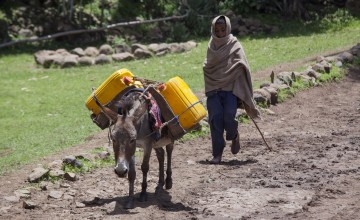
Our work
Concern’s work includes a scheme to help women safely care for malnourished children at home. This keeps children out of clinics and hospitals and empowers parents to care for their children independently.
We are also getting seeds to families whose crops have failed, so that they can try again when the rains come.
And we are giving people the clean water, soap and health advice they need to avoid illness and disease. For families at risk of scabies, malaria and diarrhoea, this help could be vital.
Unpredictable weather patterns may become commonplace with climate change so we are also helping farmers to become more resilient to crises such as water shortages.
For example, we have helped farmers grow potatoes – Irish potatoes at that – and different types of bean for the first time. In many cases, these have survived the water shortage, unlike traditional maize and wheat crops.
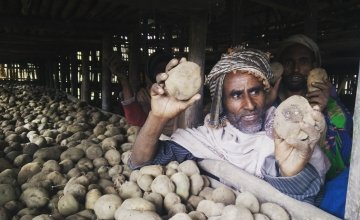
The shadow of 1984
Many will remember the shocking images and headlines during the food crisis of 1984.
Thankfully, Ethiopia is now a very different country, much more prepared for such an emergency. The government has been sending food supplies to affected areas and is working closely with Concern and other organisations to deal with immediate dangers, and find long-term solutions.
Nevertheless, the scars of three decades ago are still there.
Some of the older people remember 1984. They don’t think it will get as bad as that this time. But it is a folk memory, a fear.
Help now
Please help us to support communities affected by El Niño by donating today.



